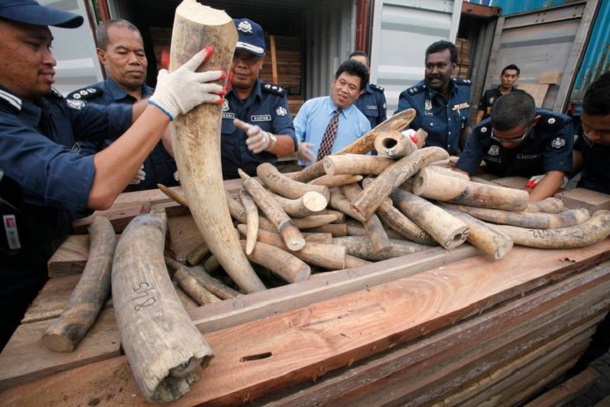The container was bounded for Vietnam and the ivory was hidden in a stock of other goods to invade port security checks.
Minister Andre Johnson told reporters that the ivory stock was discovered by a joint security task force checking containers in the port of Lome and that investigations are being carried out.
“Five hundred and fifty ivory pieces and 77 complete pieces of ivory weighing 1,689.45 kilograms were hidden in sacks inside a container loaded with wood destined for Vietnam’’.
“A clearing agent was arrested, investigations are under way to find members of the ivory traffickers’ network’’, he said.
Analysts say the seizure is one of the largest ever recorded by the police in any West African Country. West Africa is believed to be the transit point for Ivory from Africa to Asia.
Last August, police seized more than 700.5 kilograms of ivory which was believed to be from Chad in a shop in Lome belonging to a 58-year-old Togolese national.
Meanwhile, a Kenyan court sentenced a Chinese ivory smuggler to seven years in prison on Wednesday in the capital Nairobi. This is the country’s first sentence under a tough new anti-poaching law.
Tang Yong Jian was arrested at Nairobi’s international airport this month after authorities discovered 3.4 kilograms of raw ivory in his suitcase.
He pleaded guilty to charges of illegally possessing and dealing in ivory and the court considered his plea and gave him an option of paying a fine of about $233,000 to avoid the seven year jail term.
Investigators say he was traveling from Mozambique to the Chinese city of Guangzhou and the Kenyan Wildlife Service says the stiff sentence will help deter poachers, who have reduced elephant populations significantly across Africa. The International Convention on Endangered Species says more than 60% of Africa’s elephant’s populations have been reduced for the past 20 years.
The Convention on International Trade in Endangered Species of Wild Fauna and Flora (CITES) banned international trade in ivory in 1989.
But trafficking has been on the increase in recent years following a high demand in the Middle East and Asia where elephant tusks are used for the manufacture of decorative objects and in traditional medicine.
Issaka Adams/ NationalTurk Africa News
[adrotate group=”15″]

